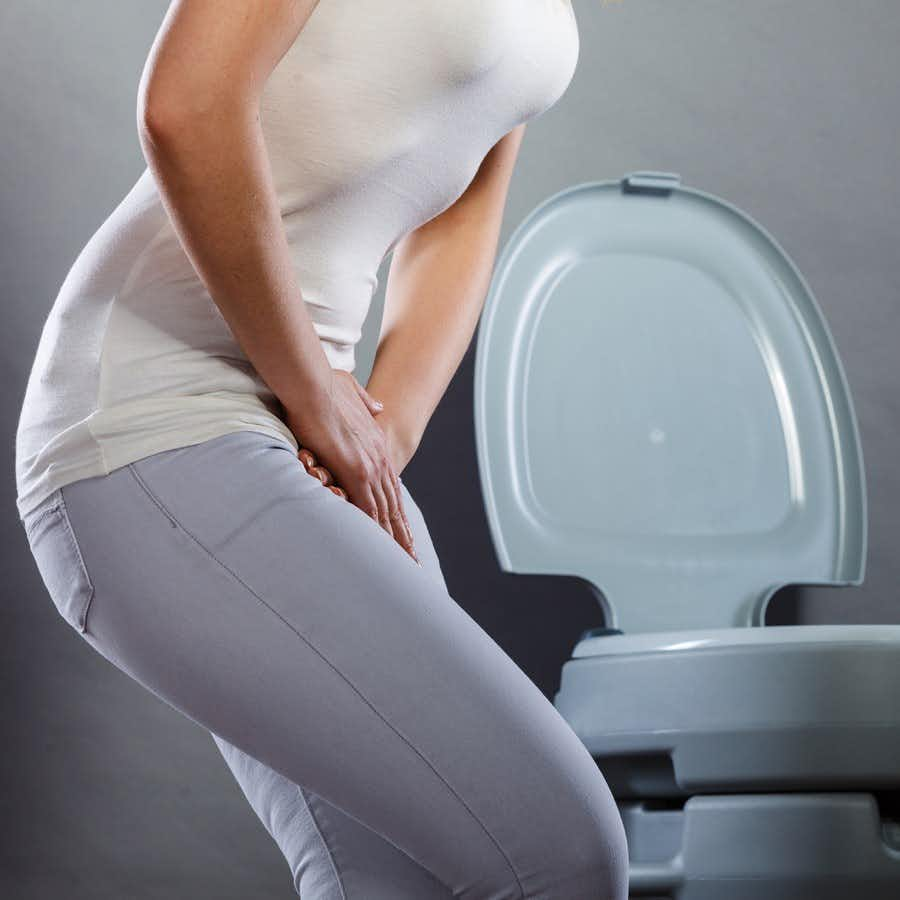
Have you ever had a urinary tract infection (UTI)? The symptoms are unpleasant, to put it mildly. First, you may feel a tremendous urge to pee. And when you do urinate, the burning sensation can be unbearable. So, there you are. You have to keep running to the bathroom and each time you dread the burn. Sometimes there is pelvic pain along with the burning. And when you see pink or red urine you know you are bleeding. Get thee to a physician promptly! And if you have fever and chills, make that double fast. Once you have had one UTI there is a good chance you will end up with recurrent urinary tract infections.
Overcoming Recurrent Urinary Tract Infections:
Recurrent urinary tract infections cause a tremendous amount of pain and frustration. An estimated 25% of women treated for an initial infection develop a second within six months. Within the first year of an infection, as many as 70% of women will have another one. Doctors prescribe antibiotics to treat these UTIs. As a result, some women may end up taking several courses of antibiotics each year.
Researchers now suggest that although the antibiotic eliminates the bacteria from the bladder, it doesn’t get rid of those in the intestines (Nature Microbiology, May 2, 2022). As a result, once the treatment is finished, the bacteria once again migrate to the urinary tract and cause more trouble.
Frequent antibiotic use decimates many other types of bacteria in the gut, though, and women with recurrent UTIs end up with less diverse microbiota. Specifically, they are often missing a group of bacteria that tamp down inflammation. The result is increased inflammation in the gut, the blood and the bladder. More inflammation appears to make women more susceptible to repeat infections.
Anything that women can do to prevent infections would be good for them and would help against antibiotic resistance. Luckily, women may now have options besides taking antibiotics for months. The senior researcher is investigating non-drug approaches such as probiotic foods, fecal transplants and a natural sugar called mannoside. All of these hold promise for re-balancing the microbiota.
A Non-Antibiotic Urinary Antiseptic Makes a Difference:
A study in BMJ offers an alternate approach (BMJ, March 9, 2022). The medication methenamine is a non-antibiotic urinary antiseptic. Doctors have prescribed it for more than a century to treat urinary tract infections.
In the new study, investigators randomly assigned 240 women with recurrent UTIs to receive either methenamine hippurate or antibacterial drugs such as trimethoprim, cefalexin or nitrofurantoin. The trial demonstrated that the non-antibiotic preventive treatment was just as effective as antibiotics. Given the growing problem of antibiotic resistance, methenamine may offer a viable option for women with recurrent urinary tract infections.
Water for Recurrent Urinary Tract Infections:
An earlier study showed that a simple lifestyle change could make a difference in the number of infections a woman might experience (JAMA Internal Medicine, Nov. 2018) The participants in this study were women who had recurrent urinary tract infections and who normally drank less than six glasses of water daily.
The investigators randomly chose half of the women to continue with their usual water-drinking habits. The other half were asked to double the amount of water they drank.
During the next year, those who increased their water consumption had, on average, 1.7 urinary tract infections. Those who had not increased their water intake had 3.2 infections on average.
The authors of this study offer this convincing observation:
“This study is the first randomized clinical trial to evaluate increased hydration for prevention of recurrent cystitis in women. We demonstrated that increasing daily water intake over a 12-month period resulted in an approximately 50% reduction in frequency of cystitis recurrences and a similar reduction in use of antimicrobial regimens… the beneficial effects observed using water, which is safe, inexpensive, and does not select for antimicrobial resistance, are substantial and important.”
Women who are able to drink two or three liters of water daily may have less trouble with recurrent UTIs and should therefore need fewer antibiotics.
Share your own story about dealing with UTIs in the comment section below.
In addition, if you think this article has value, please share it with family and friends. It’s easy; just scroll to the top of the page and click on the icons for email, Facebook and/or Twitter.
While you are at it, please encourage your contacts to subscribe to our free newsletter. That way they can keep up with the latest developments in the world of health. Here is a link to free subscriptions. You can also go ad-free while you are there. We remain your independent drug watchdog dedicated to consumer health protection! Thank you for supporting our work.
Citations
- Worby CJ et al, "Longitudinal multi-omics analyses link gut microbiome dysbiosis with recurrent urinary tract infections in women." Nature Microbiology, May 2, 2022. DOI https://doi.org/10.1038/s41564-022-01107-x
- Harding C et al, "Alternative to prophylactic antibiotics for the treatment of recurrent urinary tract infections in women: multicentre, open label, randomised, non-inferiority trial." BMJ, March 9, 2022. DOI: 10.1136/bmj-2021-0068229
- Hooton TM et al, "Effect of increased daily water intake in premenopausal women with recurrent urinary tract infections: A randomized clinical trial." JAMA Internal Medicine, Nov. 2018. doi:10.1001/jamainternmed.2018.4204

